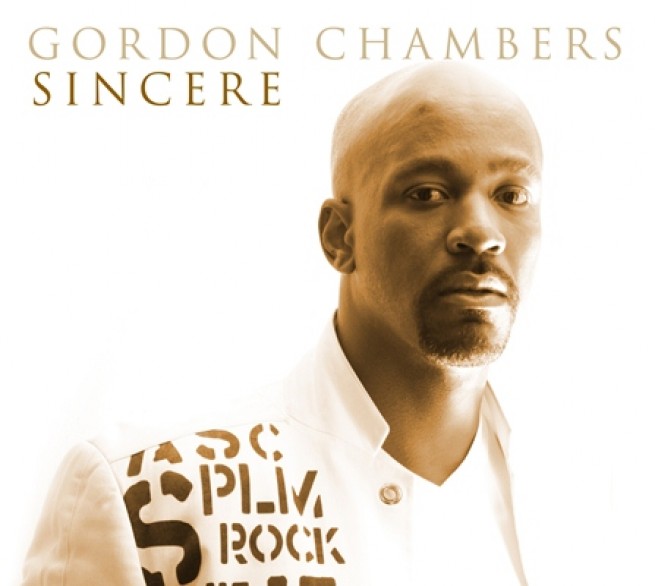My first introduction to Gordon Chambers did not occur in person but actually through an interview for a TV One interior design television program. Chambers was proudly showing off his immaculately designed Brooklyn brownstone but what caught my eye were not his numerous music awards or African-Caribbean motif but a life size photo of my favorite female singer of all time, Miss Diana Ross.
It was a vintage, sepia-toned photo of Miss Ross as Tracy Chambers taken from her classic film, “Mahogany.” Her eyes just seem to “reach out and touch” you (pun intended) as the camera focused in on her single photo strategically placed on his wall. At that moment, I said to myself, “Who is this guy and where did he get that photo?” I mean, anyone that appreciates the great talents of Miss Ross is someone I needed to know. But as I listened closely to the interview I found that like me, Chambers not only had an affinity for “divas”, but he had worked and written songs for a number of them.
From Anita Baker’s “I Apologize” to Yolanda Adams’ “Someone Watching Over Me” to Beyonce’s “After All Is Said and Done” Chambers was indeed the “real voice” behind these classic songs; songs that for many of us are a part of the soundtrack to our lives.
RayCornelius.com had an opportunity recently to talk to Gordon Chambers about his song writing passion, his latest album “Sincere”, and a private moment he shared with his friend, the late Whitney Houston, that he will never forget.
RC: When did you know that song-writing was your passion?
GC: I began writing songs as a child, at about age 8. I took classical piano lessons, but instead of perfecting my Chopin and Beethoven sonatas as my teacher Mrs. Sjogrens would have preferred, I began showing her songs I’d written instead. My early songwriting idols were Billy Joel, Lionel Richie—80’s crossover pop ruled my childhood. I also remember that I’d been obsessed with writing a song for Gladys Knight by age 10—a dream that came true in 1994, when I wrote “Missing You”, with producer Barry Eastmond, for her, Brandy, Tamia and Chaka Khan.
RC: What is the Gordon Chambers song-writing process like? And where does your inspiration come from?
GC: My inspiration has always come from using music to help myself and others heal. When I was 15, a Jersey childhood friend and Teaneck High School classmate, Donyale Morton, was murdered by her boyfriend. I was away in Jamaica on family holiday when she was murdered and wrote a song called “Always Be There” to help process my feelings. I shared the song with her mother, friends and teachers and the response was overwhelming. A dance teacher, Miss Miller, choreographed a piece to it that students performed for over 2000 people in an assembly. It was then that I accept God’s calling for me to be a writer with healing power. Over the years, I’m honored that people have told me that my songs have helped them through challenging chapters in their lives. “I Apologize” has helped couples mend broken relationships; “If You Love Me” has helped women coax the men in their lives to “open up”; and “Missing You” is often sung at funerals and memorials. I’m also learning that “Always Be Proud” from my first solo album is performed at school graduations all around the country. God is good.
RC: What goes through your head when you hear a song you’ve written on the radio or see it performed on television?
GC: It still gives me chills. I never take it for granted, ever. I’m grateful that my childhood dreams came true, and that my parents helped cultivate and supported those dreams. So many writers never get anything published because it’s such a competitive business. I do a lot of speaking engagements to try and give other writers hope.
RC: You’ve been quoted as saying that you’d like to work with Rihanna, Seal and Stevie Wonder. What ideas do you have in mind for them?
GC: I’d do anything for Stevie—play tambourine, sing back up, shine shoes! He’s my idol, but the ultimate would be to sing with him. My voice comes from his. Whitney Houston told me that after she duetted with him, any other duets were dessert—he was the meal. Seal and Rihanna would be great to write for because I’m more than an R&B/soul songwriter. I’m also pop, Rock, dance—I’m a melody man. Luckily, my collaborations in Europe and Japan have given me more opportunities to stretch musically beyond my “R&B brand” in the States.
RC: Let’s talk about your latest album, Sincere. What makes this one different from your first two?
GC: This album features new producers—especially Darien Dorsey and SteffNasty of the BeatBangghaz who brought some new up-tempo flavors to the Gordon Chambers party. However, lyrically, the lyrics on this album are even more up-close and personal than the first. I’m very vulnerable on songs like “Lead Me (The Ocean)” and “In The Band” about life outside of the “lights, camera, action” entertainment-industry portion of my life. But most of all, what distinguishes this album from the first two, is my growth as a singer from years of touring. On my piano-only version of Leon Russell’s “A Song for You”, my tribute to Donny Hathaway, you can really hear Gordon Chambers, the singer—not just the songwriter.
RC: Sincere also features a new version of your smash hit song, “Missing You” that you re-dedicated to the late Phyllis Hyman and Gerald Levert. What was it like working with each of them?
GC: Both of them became friends and were very encouraging of me not just as a writer but as a singer as well. They came to early shows of mine, and stayed in touch with me on a personal level. I visited Phyllis a lot and she became my first mentor. Gerald invited me to his Dad’s O’Jays performance and invited me to his mom’s home, when I was touring Cleveland, for Sunday dinner. They were both warm, funny and always took my calls. If they were still alive I know we’d be having fun and doing shows together. So many legends are going on to Glory way too soon. I will now dedicate “Missing You” to Whitney Houston in my live concerts. Of all the artists I worked with, she was the one who told me to go solo as an artist. And over the years I became close with her family. These three artists I miss so much, but will keep their legacies alive in my travels.
RC: Speaking of Whitney Houston, what is your fondest memory of her or tell us a story about her that very few people have heard before.
GC: Whitney truly was the epitome of kindness and sincerity. At one of our studio sessions in Atlanta, I found out that I had a huge plumbing leak at my house in Brooklyn. She took my hand and said, “I’ve had a hard day too, Gordon.” Then I said, “Let’s pray” and she took my hand and led one of the most powerful prayers I’ve ever heard. I know she’s in heaven. I felt nothing but anointment in her fingers. What moved me most however was when she said, “Gordon, when I get ready to tell my story, will you help me write it? You know Cissy, you know the Drinkard Singers, and you know where I came from.” What an honor that question was, but an angel called her home too soon. I pray for her soul and family every day.
RC: Out of all the 75 songs you have written, what is your personal favorite and why?
GC: Brownstone’s “If You Love Me” still reigns for sentimental reasons. It was the first song I wrote that I ever heard on the radio. And years later, it still gets re-recorded often and is performed at jam sessions all the time. Your love for your first “child” is always special in a different way than all your others.
RC: In one word, define the Gordon Chambers sound?
GC: I need a couple of words. It’s melodic, soulful, heartfelt, emotional, but if I had to pick one—as my latest album is titled, and as I am as a person and musician—I’d say it’s “Sincere.”
Here is Gordon’s video: I Can’t Love You, If You Don’t Love You
height=350

